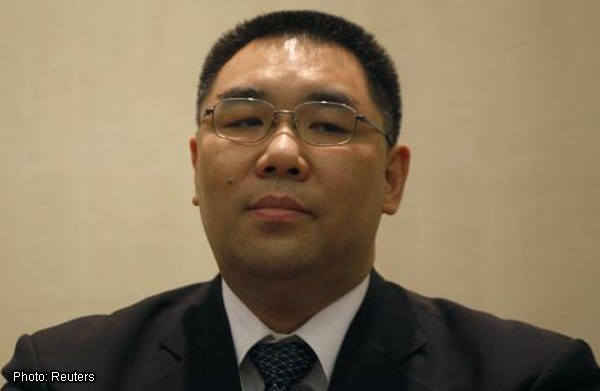Casino hub Macau scraps bill on big payouts after record protests

HONG KONG - The top official in Macau, the world's gambling capital, said on Thursday a bill providing lavish perks for senior civil servants would be withdrawn days after the largest protest in the enclave since China restored control over it in 1999.
The climbdown represents the first time the government has taken heed of a large civic movement in Macau, a former Portuguese territory with autonomy and provisions for free speech much like neighbouring Hong Kong.
Chief Executive Fernando Chui told reporters he would inform the legislature that the bill was being withdrawn. "I will not, myself, accept a single cent. I will donate everything," Mr Chui said after an executive council meeting. "People don't have to worry. Even though I'm fat, I will not make myself fat."
Macau's 600,000 residents have traditionally taken a passive approach to government policy as substantial social benefits, rapid economic growth and low unemployment blunt discontent over inequality and declining quality of life.
The scrapped bill would have awarded generous compensation packages to outgoing officials and granted Macau's top leader immunity from criminal charges. Provisions included a monthly payout to the outgoing chief executive totalling 70 per cent of his salary and a one-off grant to retiring officials.
Organisers said more than 20,000 massed outside the legislative assembly on Sunday to denounce the bill, citing housing, education and health issues which they say have been left unaddressed as politicians and business magnates boosted their wealth.
Macau's economy relies heavily on its 35 often vast and glitzy casinos, a sharp contrast to the narrow cobblestone streets and pastel-coloured houses left from Portuguese rule. Gaming taxes account for over 80 per cent of government revenues.
Residents say channelling resources into the gaming industry has left infrastructure neglected and crumbling. Protesters have also demanded restrictions on the inflow of foreign workers and checks on rising housing prices.
"The pressure is too strong. This is the first time since returning to China with such a large number of young people participating in a social movement," said Larry So, a political commentator based in Macau.
Allegations of corruption and mismanagement have long surfaced in Macau. One of the territory's most senior government officials, Ao Man-long, was arrested in 2007 and subsequently conficted of bribe-taking, money laundering and abuse of power.
Protests are far less common than in Hong Kong, where residents often use expanded rights to free speech to stage increasingly intense protests over perceived interference by Beijing in local affairs.
But young Macanese have joined the political fray, mobilising for last weekend's protest through social media such as Facebook. "The scrapping of the bill is a small victory," said Sou Ka Ho of Macau Conscience - one of the protest's organisers. "From now on, if the Macanese people face injustice, we must no longer think that we can't change anything. Instead, we should ask ourselves what we can do to change things."